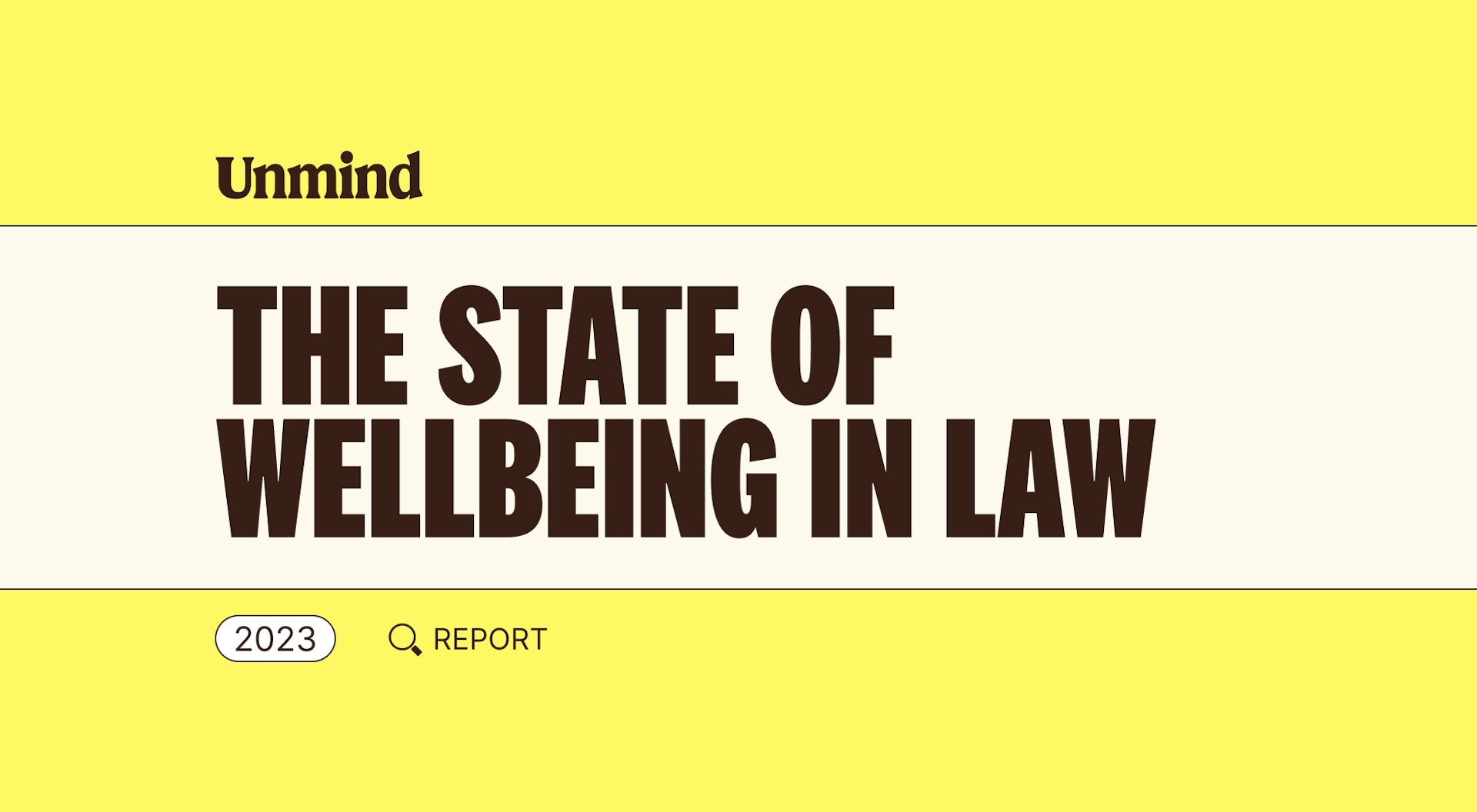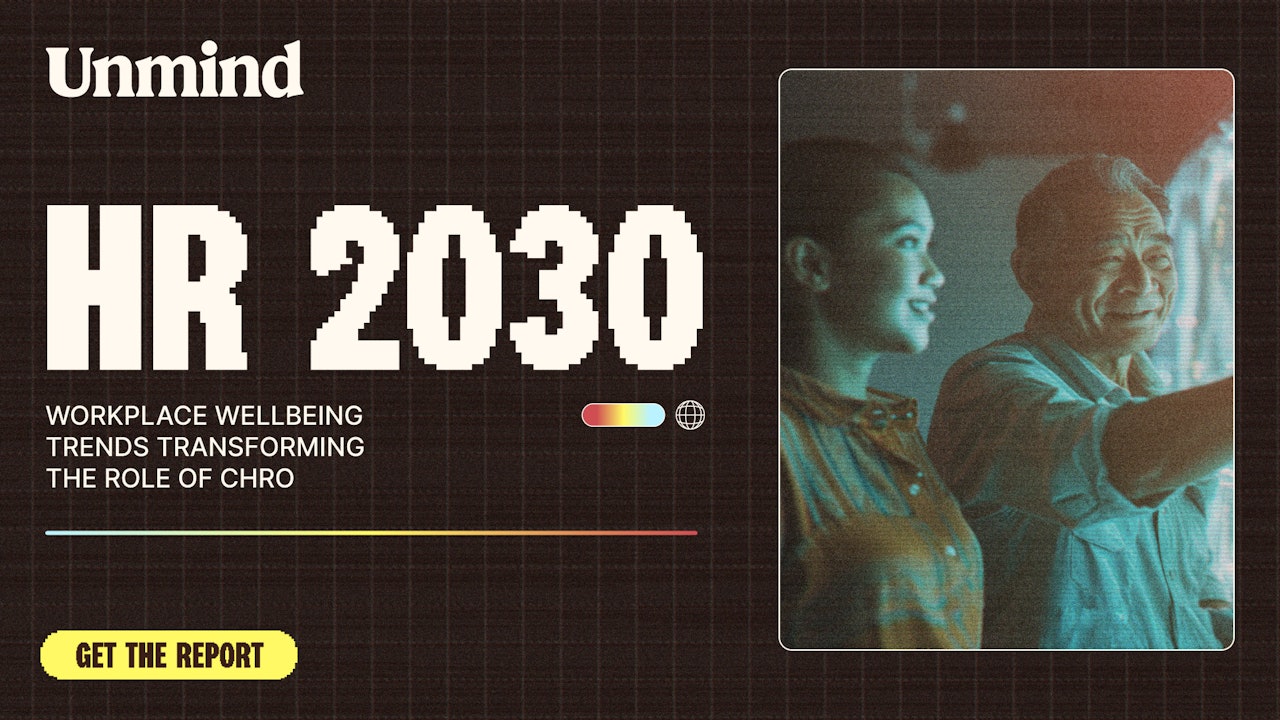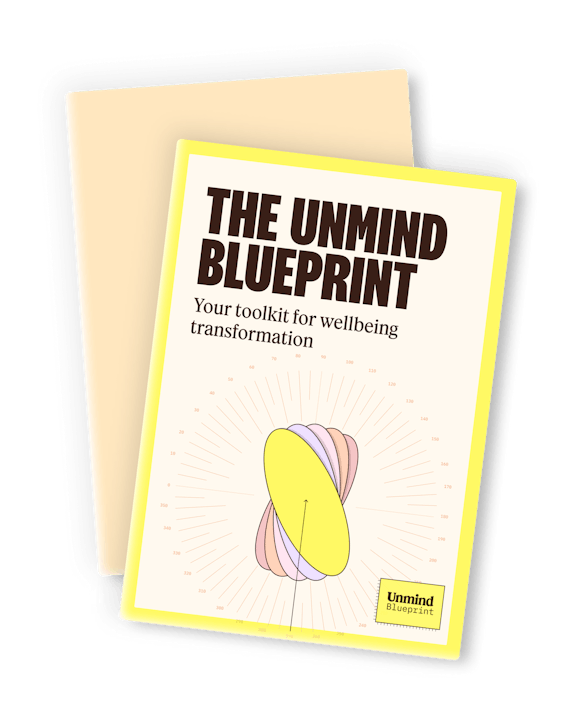The State of Wellbeing in Law 2023

The State of Wellbeing in Law 2023
With law firms facing rising labor costs and competition for top talent, along with an increased risk of occupational pressures such as stress and burnout, Unmind launched a first-of-its-kind study in the legal sector.
Encompassing a sample of 3,814 employees from six large US law firms – a sample of a population known to have higher rates of mental health difficulties than the general working population – we investigated the interplay of workplace factors that drive employee mental health and the associated financial implications.
Download the report to find out:
- How wellbeing in the legal sector compares to population averages
- The key workplace drivers of wellbeing in the legal sector
- Recommendations for the legal sector to improve mental health and performance, and focus wellbeing investment for greater returns.

